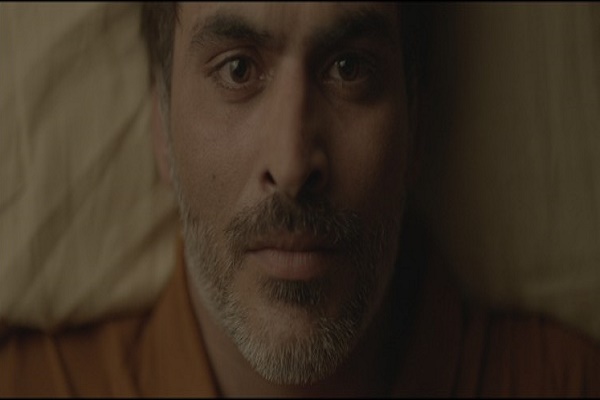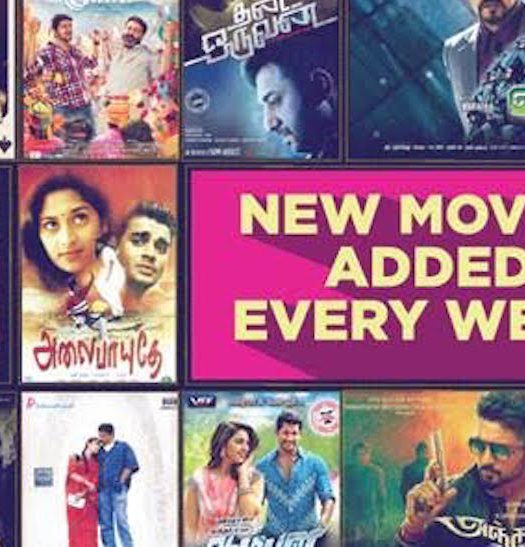Getting Marooned at MAMI – Pulkit and Jyotsana
The MAMI (Mumbai Academy of Moving Image) Mumbai Film Festival brings forth some groundbreaking movies each year. One of the films being featured at this year’s festival is Pulkit Singh’s Maroon. After his short film Bombay 1992, Pulkit ventures into the psychological thriller genre with his first feature film. Starring brilliant names like Manav Kaul, the movie traces the internal journey of a man whose wife has disappeared.
We caught up with the filmmaker who gives us some interesting insights on his movie and his inclination towards dark subjects. Joining him is the film’s producer Jyotsana Nath, who talks about raising funds for the movie, working on a tight budget and Maroon entering the Mumbai Film Festival.

Filmmaker Pulkit Singh
Can you give us a brief insight on your career as a filmmaker, what got you started in this field?
I was born in Bihar and I was always inclined towards storytelling, but there was no platform in Bihar. There is no exposure to literature or world cinema and so I pushed my parents to enrol me in a boarding school. I was sent to a boarding school in Haryana and it was there that I realised that I just wanted to make films and tell stories. After Haryana, in the year 2011, I went to Lucknow for graduation, which I left midway and the same year I came to Mumbai. It was in Lucknow that I got exposed to world cinema and literature which I found extremely interesting and I wanted to give it a shot.
I have been in Mumbai for around five years now and at the start I used to work with some of the reputed commercial directors, but I was not getting my due there. It wasn’t about the money but the craving to write well and satisfy your creativity that was absent. It was all commercial and that wasn’t something I wanted. In 2012, I decided to make my first short film which was on Bombay 1992 riots. The film got a very good response in festivals and I got confidence to go ahead with my feature project.
What was the point of conception for Maroon, what was your thought process behind creating the film?
We went to Goa Film Bazaar, 2014 and there I met Manav (Kaul). I told him about a film and he got very excited about it, but he told me this is a very risky film and no one is going to put money in it. He suggested that I write something simple and that is what I did. We came to Mumbai and I was meeting people and trying to draw inspiration to write.
During the time, one of my relatives was admitted in the hospital and I decided to go in as the patient’s caretaker. I was there for around 13 days and I wrote the entire script (of Maroon) within those 13 days. Maroon was all in my head and I just wanted to write it. I wrote only one draft of the film and got lucky with it.
What is the film about? Can you tell us something about the cast?
Maroon is a psychological thriller and as a story it is very simple. It is complex because of the way we have tried to make the film. It is different from the typical Bollywood movie as I have tried to show the mindset of a man. I have tried writing the psychological ups and downs that a person is going through.
Maroon is set in Dehradun and is about a professor whose wife disappears one fine evening. The film is the internal journey of this man who is going the trauma of losing a loved one. The entire film is from the professor’s point of view.
Coming to the characters, Manav Kaul was my first choice, in fact, I wrote the screenplay for him. I was very clear about the characters, so my producer/casting director Jyotsana (Nath) came up with options and we started locking the cast. We auditioned for a few of the other characters.

Manav Kaul in Maroon
Is there is a story behind the name of the film, any relevance to the colour maroon?
Initially we had named the film something else, but that was already registered. Since this is a psychological thriller, I tried playing with many psychological aspects of the film. I was reading about psychological colours where every colour has some significance and maroon represents loneliness. Even in English, the word ‘maroon’ means to leave someone alone or trapped, without any escape.
Thrillers are which is usually a very intense and tough genre. Why did you choose it for your first feature?
Not just my first feature, but any film that I will make will be dark because I have a deep love and affection for dark films. I love watching dark films, love writing them and also love reading dark books. I cannot write drama or romance.
You’ve shot the entire film in a single location – does that make things easy or tough because you don’t have the support of multiple locations to convey different things.
It is not easy. People think that it is easy and initially, so did I, but it is tougher. We were shooting in a bungalow in Lonavla, which was 200 years old and no one had lived in it for the past 30 years. It became a heavy task to shoot in the same location because after shooting for three days, people started getting bored of it. We were just changing the lights and camera angles. From a creative perspective, you don’t have many opportunities to explore or different things to show to the audiences. There is only that one house and you have to show that for 90 minutes.
Which are the films and filmmakers that have inspired you in the thriller genre?
Hitchcock is one of my most prominent influences. David Lynch is another filmmaker that inspires me. In Indian films, I like Sudhir Mishra’s Is Raat Ki Subah Nahin and Anurag Kashyap’s Black Friday. Movies that are in the dark zone have always attracted me. My childhood was dark as well; I was living in Bihar where I was surrounded by criminal activities. Something like that will eventually affect you and I think somewhere my childhood reflects in my films.

Producer Jyotsana Nath
Jyotsana Nath
Coming to the budget how was the funding for the movie done, what were the difficulties that you faced?
We tried raising funds by getting a producer on board, but no one really trusted us as were outsiders. Even making a short film which was appreciated didn’t give us anything. Then we decided to go ahead and decide to produce the film. I have personally invested the money, it is a limited budget, but we didn’t try to compromise on anything.
As you said the budgets were limited, so how difficult was it to work on a tight budget?
Working on a tight budget was extremely difficult, but I am thankful that the team trusted me. We have compromised on our wages to ensure that the film is made, but we have not compromised on hard work. The camera team or the production team or the art team, all have put in their best effort.
As a producer, how involved were you in the process of the film?
I am completely involved in the process, from the start till the end. Moreover, we were all working as a team. It’s very important for a producer to be involved in order to ease the process of filmmaking, but without making things difficult on the creative front. We work as a team where ideas are exchanged, but you need to understand the difference between contributing ideas and interference. You have to be on your side that is production without getting into the creative side and that is what I did.
This question is for both of you – what are your expectations from MAMI; do you think it will open up more avenues for the film?
Jyotsana: It is very difficult to make a film when you are making it without much support, so it’s a treat for us to get into MAMI. It is one of the best film festivals not only Mumbai, but India. This is an exciting time for us and we are extremely happy. Moreover, I do think that MAMI will open up avenues for us. We are getting a great response from everyone so let’s see how it goes. This is the first step and there is a long way to go.
Pulkit: The current trend of cinema is changing. Now, audiences are looking for something different, something that pushes their comfort zone. So, I am looking forward to MAMI where people appreciate this kind of cinema.


